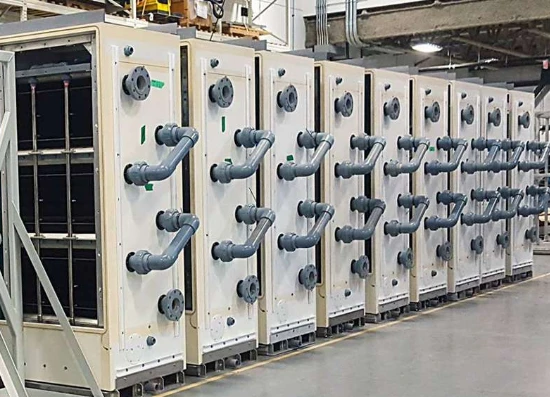
-
 Afrikaans
Afrikaans -
 Albanian
Albanian -
 Amharic
Amharic -
 Arabic
Arabic -
 Armenian
Armenian -
 Azerbaijani
Azerbaijani -
 Basque
Basque -
 Belarusian
Belarusian -
 Bengali
Bengali -
 Bosnian
Bosnian -
 Bulgarian
Bulgarian -
 Catalan
Catalan -
 Cebuano
Cebuano -
 China
China -
 China (Taiwan)
China (Taiwan) -
 Corsican
Corsican -
 Croatian
Croatian -
 Czech
Czech -
 Danish
Danish -
 Dutch
Dutch -
 English
English -
 Esperanto
Esperanto -
 Estonian
Estonian -
 Finnish
Finnish -
 French
French -
 Frisian
Frisian -
 Galician
Galician -
 Georgian
Georgian -
 German
German -
 Greek
Greek -
 Gujarati
Gujarati -
 Haitian Creole
Haitian Creole -
 hausa
hausa -
 hawaiian
hawaiian -
 Hebrew
Hebrew -
 Hindi
Hindi -
 Miao
Miao -
 Hungarian
Hungarian -
 Icelandic
Icelandic -
 igbo
igbo -
 Indonesian
Indonesian -
 irish
irish -
 Italian
Italian -
 Japanese
Japanese -
 Javanese
Javanese -
 Kannada
Kannada -
 kazakh
kazakh -
 Khmer
Khmer -
 Rwandese
Rwandese -
 Korean
Korean -
 Kurdish
Kurdish -
 Kyrgyz
Kyrgyz -
 Lao
Lao -
 Latin
Latin -
 Latvian
Latvian -
 Lithuanian
Lithuanian -
 Luxembourgish
Luxembourgish -
 Macedonian
Macedonian -
 Malgashi
Malgashi -
 Malay
Malay -
 Malayalam
Malayalam -
 Maltese
Maltese -
 Maori
Maori -
 Marathi
Marathi -
 Mongolian
Mongolian -
 Myanmar
Myanmar -
 Nepali
Nepali -
 Norwegian
Norwegian -
 Norwegian
Norwegian -
 Occitan
Occitan -
 Pashto
Pashto -
 Persian
Persian -
 Polish
Polish -
 Portuguese
Portuguese -
 Punjabi
Punjabi -
 Romanian
Romanian -
 Russian
Russian -
 Samoan
Samoan -
 Scottish Gaelic
Scottish Gaelic -
 Serbian
Serbian -
 Sesotho
Sesotho -
 Shona
Shona -
 Sindhi
Sindhi -
 Sinhala
Sinhala -
 Slovak
Slovak -
 Slovenian
Slovenian -
 Somali
Somali -
 Spanish
Spanish -
 Sundanese
Sundanese -
 Swahili
Swahili -
 Swedish
Swedish -
 Tagalog
Tagalog -
 Tajik
Tajik -
 Tamil
Tamil -
 Tatar
Tatar -
 Telugu
Telugu -
 Thai
Thai -
 Turkish
Turkish -
 Turkmen
Turkmen -
 Ukrainian
Ukrainian -
 Urdu
Urdu -
 Uighur
Uighur -
 Uzbek
Uzbek -
 Vietnamese
Vietnamese -
 Welsh
Welsh -
 Bantu
Bantu -
 Yiddish
Yiddish -
 Yoruba
Yoruba -
 Zulu
Zulu
Advantages and Applications of Fiberglass Flanges in Modern Industries
The Versatility and Advantages of Fiberglass Flanges
In the world of industrial applications and construction, materials play a crucial role in determining the quality and performance of products. One material that has gained notable recognition in recent years is fiberglass, particularly in the production of flanges. Fiberglass flanges are becoming increasingly popular due to their unique properties, versatility, and numerous advantages over traditional materials. This article explores the characteristics, benefits, and applications of fiberglass flanges, as well as their impact on various industries.
What are Fiberglass Flanges?
Fiberglass flanges are components used to connect pipes, valves, pumps, and other equipment in a piping system. They are made from a composite material known as fiberglass, which is composed of glass fibers embedded in a resin matrix. This combination imparts strength, durability, and corrosion resistance to the material, making it an excellent choice for demanding environments.
Advantages of Fiberglass Flanges
1. Corrosion Resistance
One of the most significant benefits of fiberglass flanges is their resistance to corrosion. Unlike metal flanges, which can rust and degrade when exposed to moisture and harsh chemicals, fiberglass does not corrode. This makes fiberglass flanges ideal for use in industries such as chemical processing, wastewater treatment, and marine applications, where exposure to corrosive substances is commonplace.
2. Lightweight
Fiberglass is significantly lighter than traditional materials like steel or iron. This lightweight nature facilitates easier handling and installation, reducing labor costs and improving efficiency on job sites. The reduced weight also means that less support is required for piping systems, allowing for more flexible design options.
3. High Strength-to-Weight Ratio
Despite their lightweight nature, fiberglass flanges offer impressive strength. The composition of glass fibers provides exceptional tensile strength, allowing fiberglass flanges to withstand high pressures and stresses in various applications. This strength-to-weight ratio is advantageous in scenarios where maintaining structural integrity without adding excessive weight is essential.
4. Temperature Resistance
fiberglass flange

Fiberglass flanges exhibit good thermal stability and can withstand a wide range of temperatures. While the specific temperature limits depend on the resin used, many fiberglass flanges can operate effectively in temperatures ranging from -40°C to 120°C(-40°F to 248°F). This capability is particularly crucial in applications involving hot fluids or extreme environmental conditions.
5. Insulation Properties
Fiberglass inherently has excellent thermal and electrical insulation properties, making it suitable for applications where temperature control and electrical insulation are necessary. This feature significantly reduces the risk of heat loss, enhances energy efficiency, and protects against electrical faults.
Applications of Fiberglass Flanges
Fiberglass flanges find a wide variety of applications across multiple industries. Some of their most common uses include
- Chemical Processing In environments where highly corrosive chemicals are handled, fiberglass flanges provide an effective sealing solution that resists degradation.
- Water and Wastewater Treatment These flanges are used extensively in water treatment facilities, where they can withstand exposure to chlorinated and saline environments.
- Oil and Gas Industry The resilience of fiberglass flanges against harsh chemicals makes them suitable for oil and gas pipelines, where corrosion is a significant concern.
- Marine Applications From boat hulls to offshore platforms, fiberglass flanges are used where lightweight, durable solutions are necessary.
- HVAC Systems In heating, ventilation, and air conditioning systems, fiberglass flanges can help reduce energy losses and improve overall system efficiency.
Conclusion
Fiberglass flanges represent a modern solution to the challenges faced by traditional materials in demanding applications. With their unique properties, such as corrosion resistance, lightweight nature, and versatility, they are paving the way for innovative solutions across various industries. As technology continues to advance and industries evolve, the use of fiberglass flanges is expected to rise, contributing to greater efficiency, reduced maintenance costs, and enhanced performance in an array of applications. Investing in fiberglass flanges is not just a choice for today but a step towards a more sustainable and efficient future in industrial practices.









